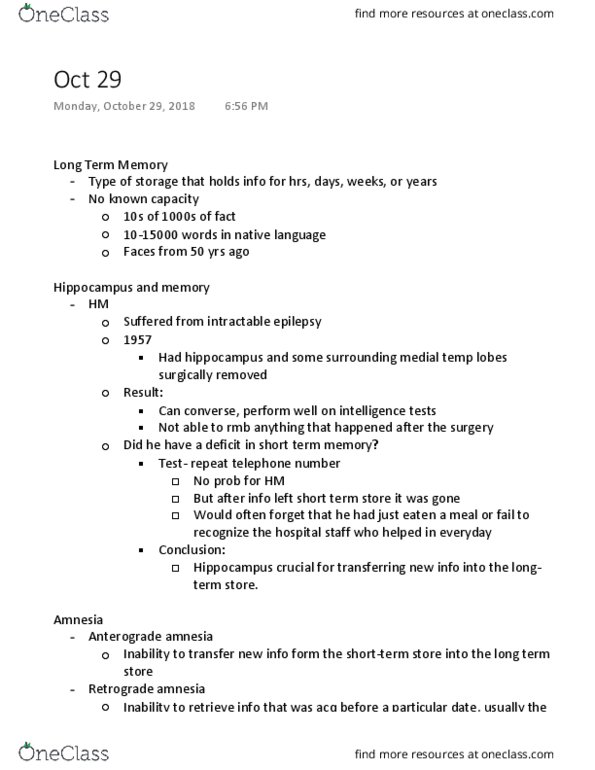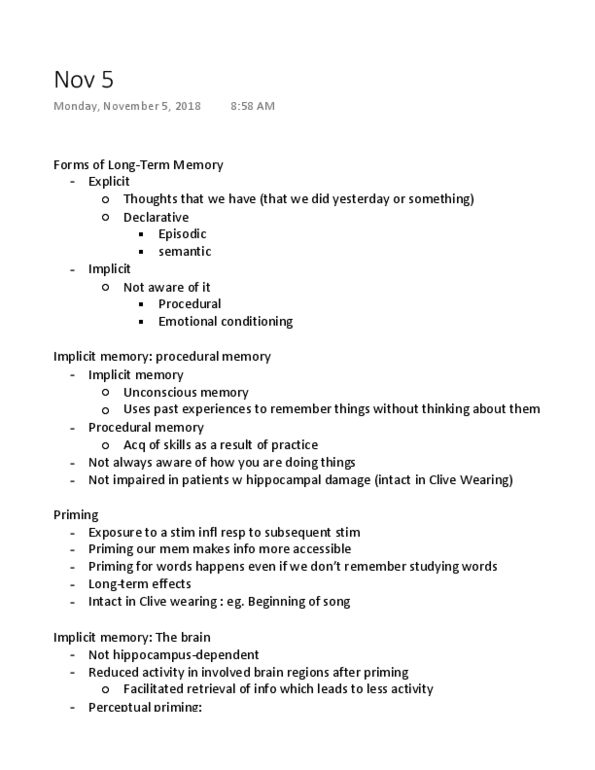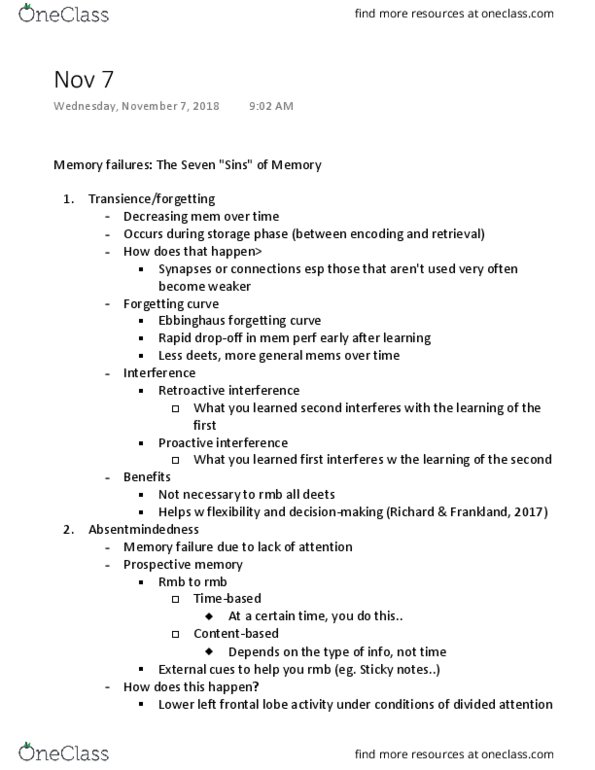PSYC 101 Lecture 27: Different forms of long term memory
PSYC 101 verified notes
27/36View all

Forms of Long-Term Memory
-
Explicit
○
Thoughts that we have (that we did yesterday or something)
○
Declarative
§
Episodic
§
semantic
-
Implicit
○
Not aware of it
§
Procedural
§
Emotional conditioning
Implicit memory: procedural memory
-
Implicit memory
○
Unconscious memory
○
Uses past experiences to remember things without thinking about them
-
Procedural memory
○
Acq of skills as a result of practice
-
Not always aware of how you are doing things
-
Not impaired in patients w hippocampal damage (intact in Clive Wearing)
Priming
-
Exposure to a stim infl resp to subsequent stim
-
Priming our mem makes info more accessible
-
Priming for words happens even if we don’t remember studying words
-
Long-term effects
-
Intact in Clive wearing : eg. Beginning of song
Implicit memory: The brain
-
Not hippocampus-dependent
-
Reduced activity in involved brain regions after priming
○
Facilitated retrieval of info which leads to less activity
-
Perceptual priming:
○Implicit mem for visual chars of word/pic
○Visual areas
-Conceptual priming
○Implicit mem for meaning of word/pic
Explicit:
Semantic memory
-Collection of facts and concepts that make up our knowledge of the world
-Hippocampus not necessary to acq new semantic memories
Episodic memory
-Collection of past personal experience that occurred at particular time and place
-Mental time travel
○Remember back then when _____
-Important for imagining the future
○Allows us to mentally try out diff scenarios based on our memories
Divergent creative thinking
-Alternative uses task (AUT)
○Create unusual uses of common objects
○Scoring:
§Fluency
§Originality
§Flexibility
○Incr activity in brain network supporting episodic mem
§Episodic mem might contribute to divergent creative thinking
§Amnesic patients perform poorly on similar tasks
§Brief retrieval training enhances AUT performance
Collaborative memory
-Collaborative mem (mem of a group) better than that of single individual
-Nominal group better than collaborative group
○You can do own methods with the nominal group
○Collaborative inhibition
○Might be due to interference of retrieval strategies
-Episodic memory serves important social functions
Summary:
Forms of long-term memory
-Explicit vs implicit mem
-Implicit mem
○Procedural, priming, conditioning
-Explicit memory is hippocampus dependent
○HM and Clive Wearing
Nov 5
Monday, November 5, 2018
8:58 AM
Document Summary
Thoughts that we have (that we did yesterday or something) Uses past experiences to remember things without thinking about them. Acq of skills as a result of practice. Not always aware of how you are doing things. Not impaired in patients w hippocampal damage (intact in clive wearing) Exposure to a stim infl resp to subsequent stim. Priming our mem makes info more accessible. Priming for words happens even if we don"t remember studying words. Intact in clive wearing : eg. beginning of song. Reduced activity in involved brain regions after priming. Facilitated retrieval of info which leads to less activity. Implicit mem for visual chars of word/pic. Collection of facts and concepts that make up our knowledge of the world. Hippocampus not necessary to acq new semantic memories. Collection of past personal experience that occurred at particular time and place. Allows us to mentally try out diff scenarios based on our memories.




